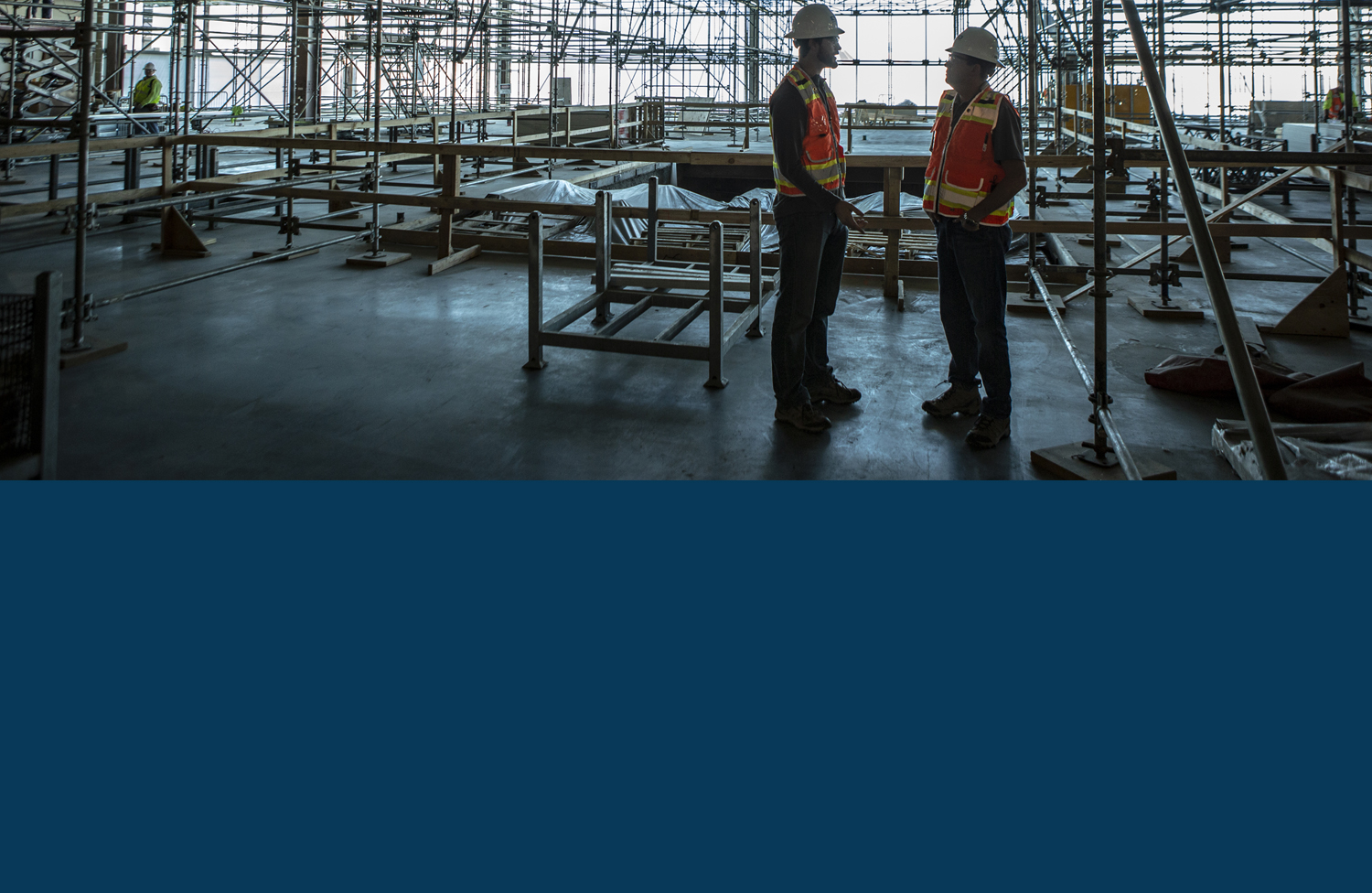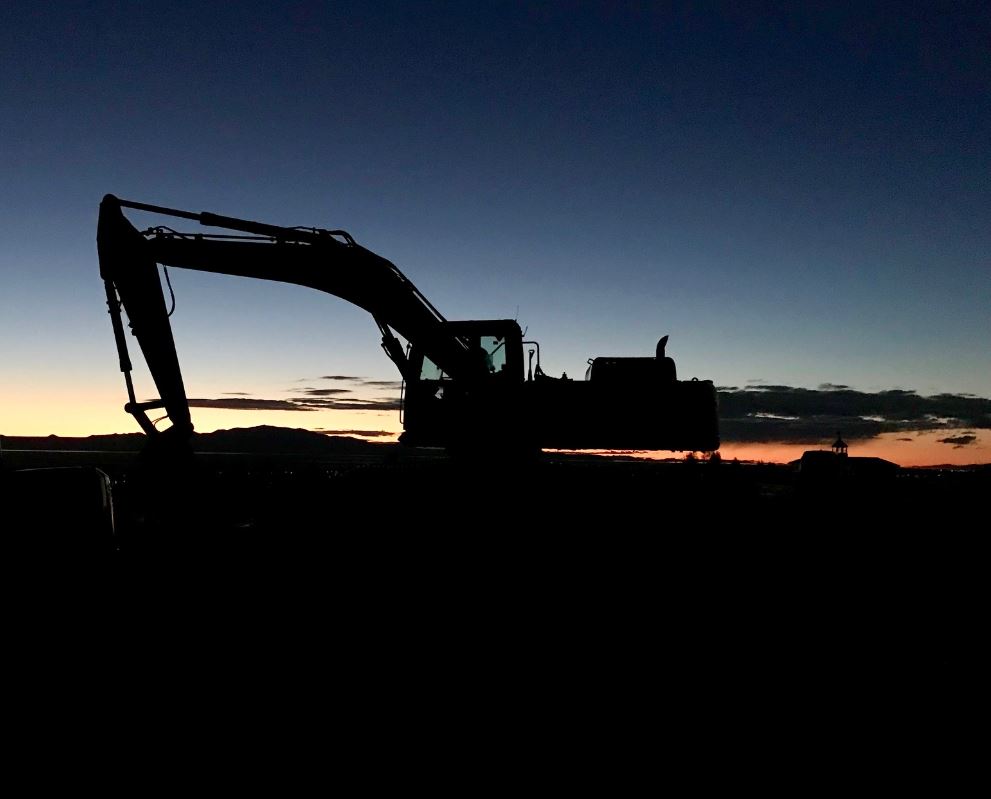
Construction Defect and Scheduling Claims
With over one hundred years of combined construction law experience, the attorneys of Babcock Scott & Babcock know that the causes of a construction defect are not always apparent. Our firm represents owners, sureties, insurance carriers, contractors, subcontractors, suppliers, and design professionals in construction defect and scheduling claims. Contact us in Salt Lake City, Utah, for assistance with a construction defect claim.
 What to do When a Construction Defect is Found
What to do When a Construction Defect is Found
When construction defect and scheduling clams arise, it is not always practical to stop construction until the dispute is resolved. Many of our attorneys have been active design professionals, engineers, and construction project managers or have a degree in construction management. Our lawyers help find solutions for parties that need to move forward with a project to assure its successful and profitable completion.
Construction Defects
A construction defect is a flaw or deficiency in the design, workmanship, materials, or systems used in a construction project that leads to the failure or inadequacy of a project. These defects can range from minor issues, such as cosmetic imperfections, to significant problems that affect the safety, functionality, and longevity of a project. When a construction defect is found, it is important to know your legal options.
When construction defects and scheduling clams arise, it is not always practical to stop construction until the dispute is resolved. The attorneys at Babcock Scott & Babcock can help find solutions for parties that need to move forward with such a project to assure its successful completion.
What are the most common instances of construction defects?
Structural Issues
Structural issues refer to defects in the foundational and load-bearing elements of a building, such as beams, columns, floors, and walls. These problems can result from improper design, inadequate materials, or poor construction practices. Structural defects can compromise the stability and safety of a building, potentially leading to cracks, settlement, or even collapse.
Water Intrusion
Water intrusion defects occur when water penetrates a building’s envelope, including roofs, walls, windows, and doors. This can lead to problems like mold growth, wood rot, and corrosion of metal components. Causes of water intrusion often include poor waterproofing, faulty flashing, and improper installation of windows and doors.
Electrical Problems
Electrical problems in construction refer to issues with the building’s electrical system, such as wiring, outlets, and circuit breakers. Defects can arise from faulty installation, use of substandard materials, or non-compliance with electrical codes. These issues can lead to power outages, electrical fires, and increased risk of electrocution.
HVAC System Failures
HVAC system failures involve defects in the heating, ventilation, and air conditioning systems of a building. These defects can result from improper design, poor installation, or use of inferior components. Consequences of HVAC system failures include inadequate temperature control, poor indoor air quality, and increased energy consumption.
Filing a Construction Defect Claim:
Filing a construction defect claim in Utah involves a detailed and often complex process to ensure that the responsible parties are held accountable for any deficiencies in a construction project. The first step typically involves identifying and documenting the defects thoroughly. This includes taking photographs, collecting maintenance records, and compiling a list of issues observed. It’s also advisable to consult with a construction attorney who can provide a professional assessment of the defects and their potential causes. Owners are generally required to first notify the builder or contractor about the defects found, and give them an opportunity to inspect and rectify the issues before filing a formal claim.
Once the defects have been documented and the builder notified, if the builder fails to address the issues satisfactorily, the next step is to file a formal construction defect claim. In Utah, this process is governed by specific statutes of limitations and statutes of repose, which set the time frame within which a claim must be filed. Owners may need to engage an attorney who specializes in construction law to navigate the legal complexities, negotiate with the builder or their insurance company, and, if necessary, represent them in court. A successful claim can result in the repair of the defects, compensation for damages, and other remedies deemed appropriate by the court.
Babcock Scott Advantage
Our lawyers understand all forms of scheduling techniques and know how to interpret information from plans, specifications, contract addenda, shop drawings, and all forms of critical path scheduling. We work closely with defect and scheduling experts and at times are called upon to serve as expert witnesses or consultants on construction cases. Our practical “sticks and bricks” experience allows us to quickly understand and assess a construction defect or scheduling claim.
If your construction project has come across any construction defects and you are having trouble navigating negotiations with your contractor to resolve these issues, reach out to us by filling out the form below.



